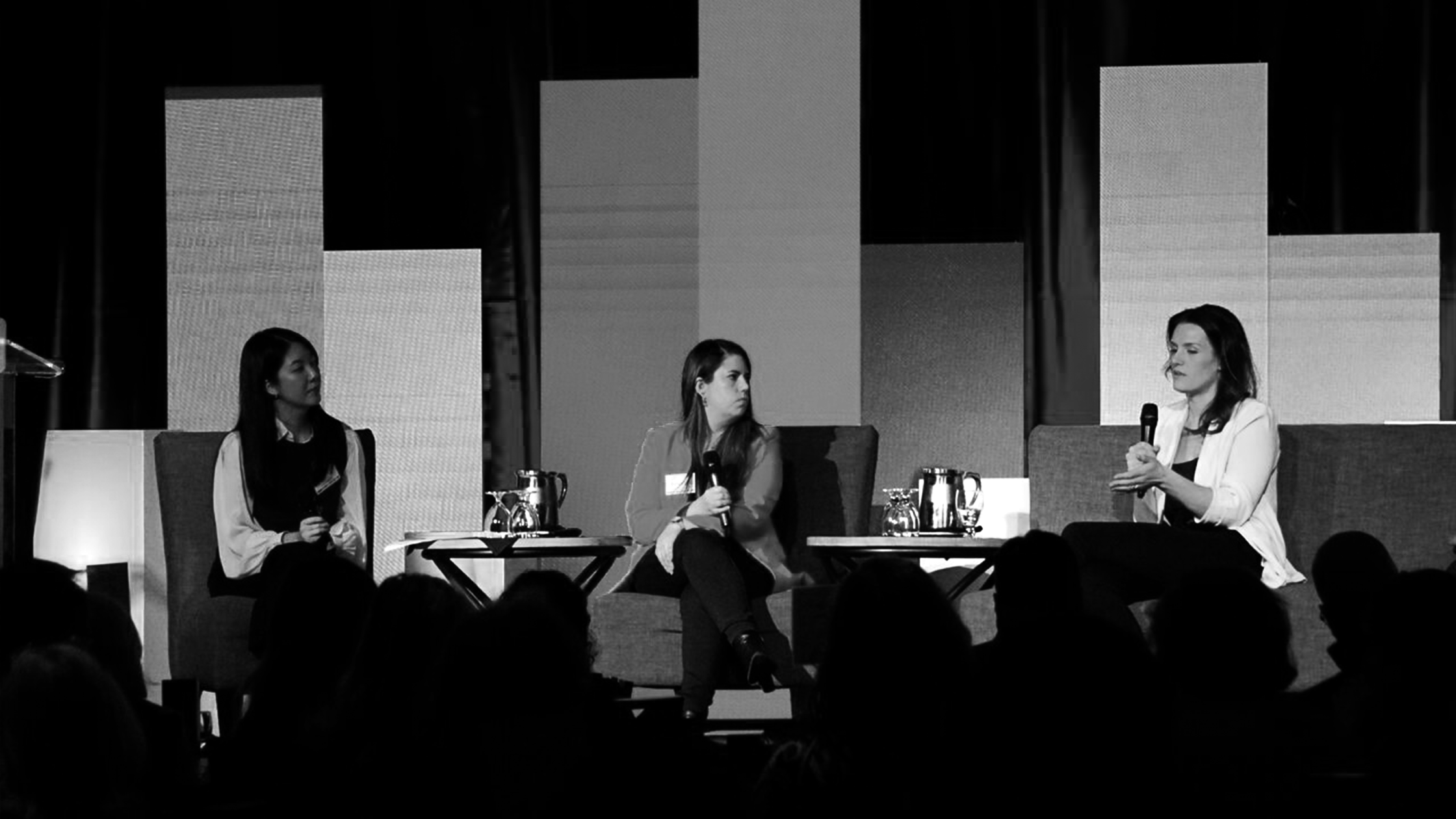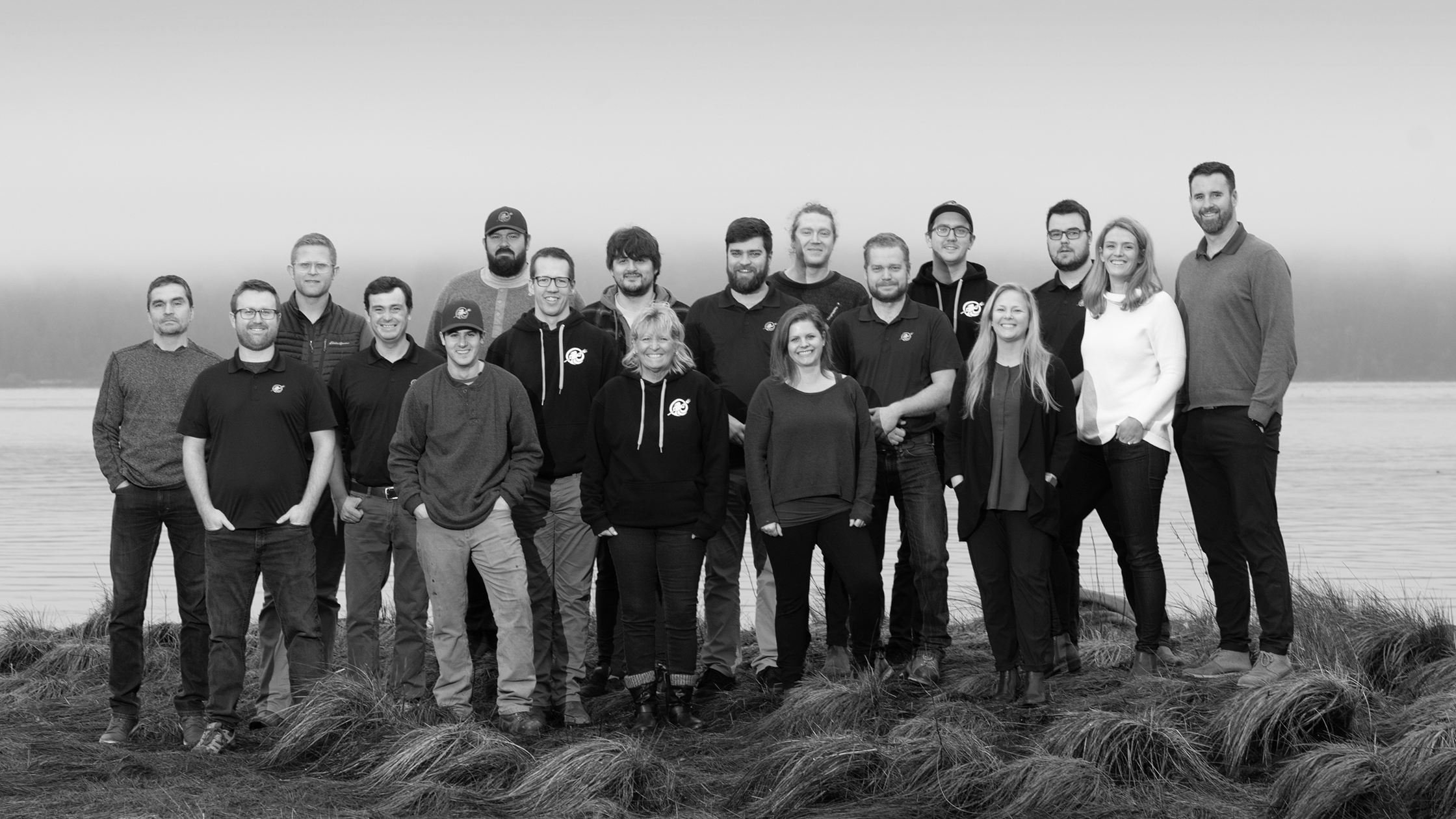Celebrating International Women's Day: B.C. Women in Tech Roundtable
BC’s tech sector has been white hot to start this year and the province’s female founders have been leading the charge.
The province’s strategic Investment fund, InBC, has built an impressive executive team that’s led by CEO Jill Earthy, Board Chair Christine Bergeron, and recently-hired CIO, Leah Nguyen. Speaking of investments, money continues to pour into our tech sector and female-founded companies like Paidia, Mintlist, Sanctuary AI have all secured the bag in 2022.
So what’s driving this change? We sat down with Julie Angus (CEO, Open Ocean Robotics), Brianna Blaney (CEO & Co-Founder, Pocketed), Aria Hahn (CTO, Pocketed), and Humaira Ahmed (CEO, Locelle Digital) to find out.
All three of these companies are on the rise and primed to blow up in 2022. Just within the last year, Open Ocean won Campbell River’s’ NexStream 2.0 Wild Card Challenge, Pocketed secured $1M in an oversubscribed seed round, and Locelle is heading to Washington State to participate in Canadian Startup Market Accelerator program.
Julie, Aria, and Humaira sat down with us to share insights from their founder journeys and how we can encourage more women to pursue a career in STEM.
What’s been the driving force to get you where you are today?
Julie: I believe that we need to better protect oceans, for the health of our planet and for economic prosperity. This has come from spending hundreds of days on the ocean in small boats, including five months rowing across the Atlantic Ocean. We need to advance and embrace technologies like autonomous vessels to overcome the challenges of ocean monitoring and I believe our company can play an important role in that transformation.
Aria+Brianna: More diversity in innovation is the key to tackling really big issues like climate change, food security, and more. Money is a leading barrier to innovation and entrepreneurship, especially for women and equity-seeking groups. As experienced founders, we’ve lived this pain, trying to find money to start and grow our businesses. Less than 3% of venture funding goes to women and it’s not much better in the government funding space.
There are billions of dollars in ‘free government money’ available every year in Canada with grants, tax credits, and more – and a lot of it goes unused because it’s hard to find the right programs and then painful to apply. We decided it was time to build a better, simpler way for businesses to get the money they need to grow.
Humaira: Our mission is to democratize access to knowledge and learning in an effort to create equitable workplaces for women in traditionally-male dominated industries. Over 56% of the women working in the tech industry quit their jobs mid-career and that is a big problem that I am committed to solving -- especially as a mother of two girls.
How did you get into the technology sector?
Julie: I have always been interested in technology. I did my masters in molecular biology at the University of Victoria, developing a therapeutic for a rare genetic disorder. To me, technology has the potential to address many of our thorniest problems.
Aria+Brianna: My background has always been in tech, having completed my PhD in Bioinformatics at UBC. My co-founder, Brianna Blaney, has a strong background in business and marketing and is the Founder of Envol Strategies, and HR and recruitment disruptor.
We met during entrepreneurship@UBC’s HATCH Accelerator Training Program, where we realized we had an amazing synergy that overlapped and flowed into how we built companies. We co-founded DeepND, a predictive hiring and retention software platform for restaurants and retailers. Unfortunately, COVID-19 hit restaurants and retailers hard, requiring us to pivot. While reflecting on that experience, it was clear that grant funding had played a significant role in our ability to build — but it was frustrating, painful, and inefficient to access. Hundreds of conversations with founders across North America validated that they weren’t alone in their frustrations. Thus, the idea for Pocketed was born!
Humaira: I have a background in software engineering and have worked in the tech industry for over a decade doing marketing and communications. I’ve always believed that everyone belongs in tech and it was never a question in my mind -- especially growing up in Pakistan where there was a huge focus on female education.
You’ve used Innovate BC programs and funding. How has government funding helped grow your business?
Julie: It’s hard to build a cleantech company, especially one that is hardware based. It takes substantial money and time before we can start earning revenues or even advance our technology to the point that it has appeal to investors. Government funding helped us bridge those early days, enabling us to hire staff and build a prototype that we could then use to demonstrate value to customers and attract investment.
Aria+Brianna: Pocketed helps start-ups, small businesses, and side hustles access billions of dollars in free government money with our intelligent matching platform and managed marketplace solution. We have helped more than 4,000 businesses apply for over $80M through our platform.
We leverage our platform for ourselves too, securing roughly $750k in government funding over the last 18 months. We have used funding programs, including Innovate BC’s ISI program, to make key hires on both the tech and growth sides of our business. Our team has rapidly expanded, allowing us to meet market demands - in large part due to our utilization of hiring grants. As a tech-based company founded in research and development, we also strategically utilize Scientific Research & Experimental Development (SR&ED) tax credits.
Humaira: I am beyond grateful for the support we have received from Innovate BC right from the start. To go from an idea, to a networking app, to a pivot into a learning and development platform, we’ve tapped into grants, mentorship, accelerators and our supportive tech community to accelerate our growth. We have received so much support in all key areas of business through Innovate BC that I think without it, we would not be where we are today.
Why do you think there are still so few females in the technology sector? And how can we get more women into technology?
Julie: It’s a complicated question that starts with why are there fewer women choosing STEM degrees and why do fewer of those women stay in technology careers after graduating? Also, why do we have even fewer women in leadership positions in the technology sector? We're obviously doing something wrong.
I think a good starting point is showcasing what can be done with a STEM education, the positive impact it can make in bettering society, and how rewarding and fulfilling this type of career can be. Also, we need to see more female role models and mentors in these careers. As they say -- if you can see it, you can be it.
Aria+Brianna: We think that a large part of the issue surrounding women in the technology sector stems from a lack of representation, visibility, and amplification. There needs to be more of a focus on prioritizing representation and inclusion of all individuals in the tech sector to ensure that we change the course of innovation to one of diversity and inclusivity. There are many incredible women in the tech-space and their accomplishments need to be celebrated and amplified, and not just because they are women.
At the founder level, we know that access to funding continues to be a leading barrier for entrepreneurs – especially women and other equity-seeking groups. We built Pocketed to level the playing field, eliminating financial barriers to entrepreneurship. We are proud that over 60% of Pocketed users are female-led businesses, which underscores our commitment.
Humaira: It has been my observation that there are a few key reasons we are still faced with the challenge of fewer women in technology sector:
- Stereotypes and societal expectations from an early age. If we truly want to change our workplaces, we need to put a sincere effort into changing how we talk to our kids and what activities and things we steer them towards.
- Representation is a big factor and there simply aren't enough women in executive leadership and management roles in the tech industry. It is a lot easier to be something when you see it happen.
- Organizational culture is another key factor. Most women want flexibility in when, where, and how they get things done -- especially as they embark on the journey of parenthood. With increasing demands and bigger responsibilities as we take on leadership roles, growing family needs, and societal pressures of “being there” at personal and professional events, there is a level of emotional labour that takes over and becomes exhausting. Again, with not enough representation and seeing role models like them, it can be discouraging.
That said, there are a few ways we can bring more women into tech sector:
- Attract women tech leaders to come speak in classrooms at early ages as this opens up possibilities for younger girls and women
- Provide mentorship opportunities to women in colleges/universities and connect them with women leaders who they can learn from
- Profile and amplify women in tech - tell their stories and show diversity
- Share with young girls and women how being in tech can be a rewarding career and why tech needs more women
What advice would you pass on to other women to help them progress in this industry?
Julie: You can do it. We need diversity in this field and we need you to step up and make a difference. We all know that diversity creates better companies, and we all need to work together to achieve that. Find mentors to support you, follow your passions, and make a difference in the world.
Aria+Brianna: Most of the advice we would give to women in the industry is the same advice we would give to anyone, be they women, men, or non-binary.
- Be curious — entrepreneurship is a daily lesson in humility. You get it wrong often. Staying curious helps you stay agile and responsive. Experiment and move quickly.
- Be a little (or maybe even a lot) obsessive — I don’t think there is another way to stick to entrepreneurship if you are not thinking about it almost all the time. Find a problem that you’re genuinely passionate about solving. It will help to keep you going through the long days, late nights, stress, and uncertainty.
- Be the dumbest in the room by design — we intentionally hire, work with, and speak to people who know more than us, have better ideas than us, and provide their experienced opinions all day, every day.
- Be lucky — entrepreneurship is a privilege. It involves risks and sacrifices many people simply cannot make. There is a huge element of being fortunate enough to have the option to even try building something. Access to funding plays a role in this. Our vision for Pocketed is to eliminate financial barriers to entrepreneurship.
- Be focused — focus has been drilled into us through our advisors and directors. It’s hard to pick “just one thing” or “just one user” you are going to build for. We find it helpful to remember that focus doesn’t mean everything else is a “no,” it’s just a “not yet.”
Humaira:
- Celebrate who you are and don’t try to fit in -- you are supposed to stand out for you and for others looking at you for inspiration.
- Remove career blinders -- be open to new opportunities and take risks to get ahead.
- Support and champion other women -- at work, on social media and at events.
- Network -- meet at least a few new people every month and always follow up.
- Apply for jobs you want -- even if you don’t meet all the criteria.
- Negotiate for better pay -- always!
Looking for resources to help you encourage diversity, equity and inclusion in your workplace? Check out this free resource hub we offer.
More About Us
You May Also Like
These Related Stories

Key Takeaways: Women Innovating for Our Future at Rising Economy 2024

International Women’s Day: Six B.C. Women Making their Mark on Tech
